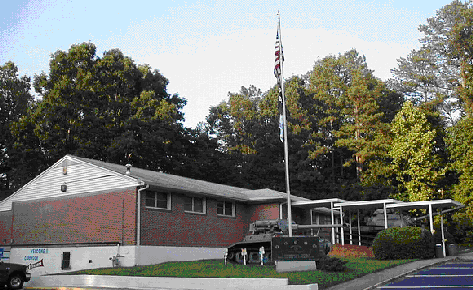Post 251 Duluth, Georgia
- Home
- Post 251 Duluth, Georgia
Post 251
Duluth, Georgia
About This Post
What Makes this Post Unique
Not unlike the group of twenty officers credited with planning the American Legion almost thirty years earlier, twenty-five veterans of World War II came together in 1948 to plan an American Legion Post to serve their community.
Their community, Duluth, Georgia, is located in the northwest quadrant of Gwinnett County, on the border of Fulton County and bound by the Chattahoochee River. Georgia legislators created the South’s most dynamic county in 1818 from frontier land, which the Creek Indians had ceded to the state. The county was named after Button Gwinnett, a fiery patriot and one of Georgia’s three signers of the Declaration of Independence.
As the state of Georgia was forming the county, it is highly likely that Evan Howell was planning his move west from Cabarrus County, North Carolina. In 1821, Evan Howell, the first successful farmer and merchant of what would become Duluth, Georgia, settled the Cherokee Indian Territory. He built his home and began working to bring his people into this part of the country. The community prospered, and with the coming of the railroad in 1873, the original town of Howell’s Crossroads was officially renamed Duluth.
Duluth was named as a joke after Duluth, Minnesota, the origin point of the railroad, when Congressman J. Proctor Knott of Kentucky made fun of the name. Despite the joking, today there is even a Proctor Square and Knott Street in town. This tradition of having fun while still providing a safe and beautiful community is the hallmark of Duluth and the underlying theme of the American Legion Post to be born.
Our group met in the gymnasium of the Duluth School following a basketball game. Infused with the atmosphere of excitement and victory still lingering in the gym, the founding members of our Post each contributed twenty five dollars ($25.00) and made plans to rent the original Post Home on the banks of the Chattahoochee River. Thus the American Legion Chattahoochee Post Number 251 was born. They purchased lumber to build a bar, four cases of beer, two cases of colas, and some ice; the fun was about to begin.
In November of that year, they hired Roy Moulder as the first bartender, paying him fifty dollars ($50.00) a week in salary. Not long after that, while operating on a temporary charter, the Post was experiencing growing pains. Elmer Ethridge and Joe Barker met with Thurman Green to negotiate the purchase of just over seven and one half acres of land along Duluth Highway. The deal was closed with a handshake for one hundred dollars ($100.00) per acre. A week later, Russel McGee, the Post Finance Officer, issued a check for seven hundred and sixty nine dollars ($769.00).
The Post remained on the river until 1955, at which time construction of the new Post Home was underway. As soon as the basement was complete, the Post moved in. It would take until 1959 before the building was complete, and it is still in use today.
Share:

